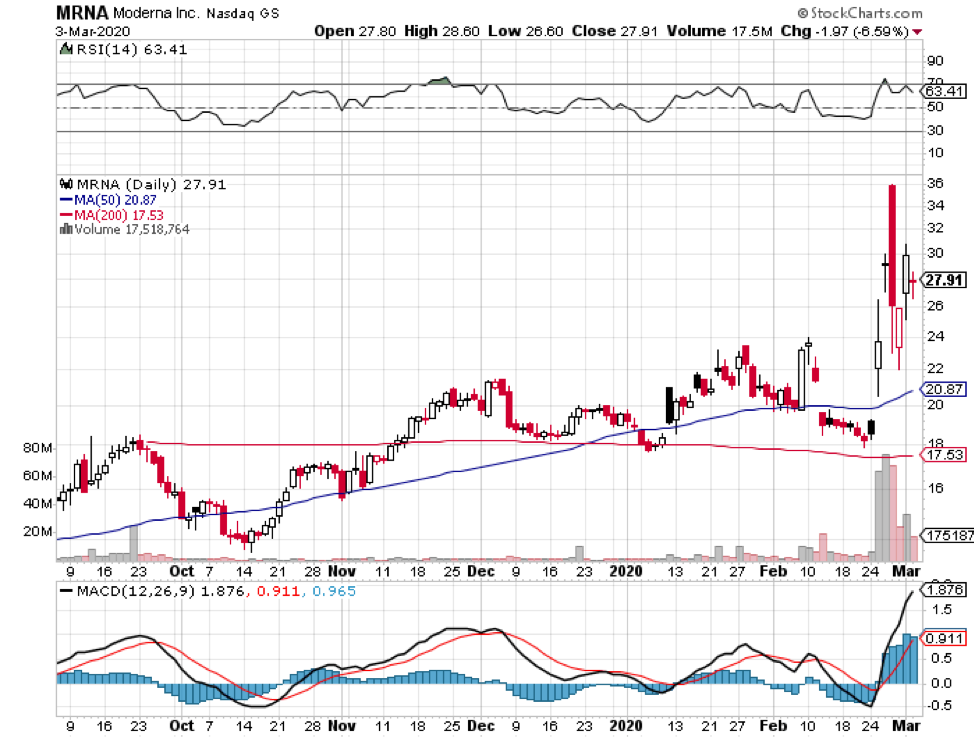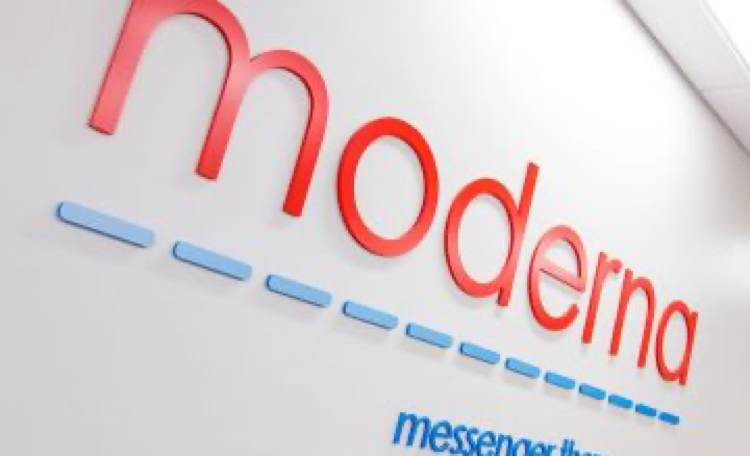A New Technology to Edit Genes Hits the Market
The biotechnology market is estimated to surge over $775 billion by 2024 as experts in this sector continue to discover cutting-edge treatments for thousands of previously incurable diseases.
While gene-editing therapies have been dominating the rare disease field in the past years, Moderna Inc (MRNA) has been working on a novel but supposedly more effective solution.
Instead of altering the genes via the DNA of a person to treat the sickness, the company strengthens the messenger RNA (mRNA) to help the body fight the disease on its own.
Here’s Moderna’s take on why its treatments are more sustainable and effective in the long run.
Unlike DNA-based therapies, which target the nucleus of the cell, Moderna is developing mRNA treatments. According to the company, their method would be easier to implement compared to the more commonly used technique.
This is because the DNA is stored solely in the cell’s nucleus, which makes it difficult to access. In comparison, mRNA can be found throughout the cell, making it more readily available.
Moderna uses the same logic in developing its vaccine for the coronavirus disease (COVID-19) --- and they might have just hit the nail in the head here.
Since the coronavirus outbreak, Moderna has been at the forefront of the crisis. Using its patented technology, the company recently announced that it has created a new vaccine against this potential pandemic.
In fact, the first batch of COVID-19 vaccine called mRNA-1273 was already shipped to the National Institutes of Health for testing.
The first trial for this vaccine, which will include 20 to 25 volunteers, will be completed by April. Initial clinical data is estimated to be released by July or August.
Given the complexity of the situation and the limited information we have about the coronavirus, Moderna’s response was actually quite impressive.
After learning about the genetic composition of the coronavirus, the company was able to develop a potential vaccine in less than two months.
To put things in a better perspective, keep in mind that there are only two companies that have something to show for since this outbreak became public: Gilead Sciences (GILD) and Moderna.
However, Moderna’s output is different from Gilead’s treatment.
For one, Gilead’s approach is to build upon or reuse an existing antiviral drug Remdesivir to develop a coronavirus cure.
In comparison, Moderna created a new vaccine from scratch and still managed to get ahead of the pack.
Both companies stand to win though since the two treatments won’t be directly competing against each other.
Gilead’s drug aims to cure people who are already suffering from the coronavirus disease while Moderna offers a vaccine to avoid infection.
Aside from working on the coronavirus disease solution, Moderna has recently announced another promising mRNA-based vaccine called mRNA-1647.
This vaccine seeks to offer treatment for cytomegalovirus (CMV), which is a virus related to those that cause infectious mono and chickenpox.
While this disease is most dangerous to newborn babies because it could cause birth defects when transmitted through the pregnant mother, this is a common virus that can affect almost everybody.
In the US alone, approximately 50% to 80% of adults have been infected by the time they reach 40. Once you get infected by CMV, the virus stays in your body for life.
According to Moderna, the results of the Phase 2 trial for the CMV vaccine should be out by the third quarter of 2020. If all goes well, the company will enter the next phase by early 2021.
Although Moderna’s true value will only emerge when the company actually brings a product to market, it’s 32.5% jump in the first two months of this year is still noteworthy.
The fact that it is on track to deliver potentially lifesaving drugs in the form of the coronavirus and CMV vaccines also makes it a first-rate hedge against this current anxious and fearful market.




